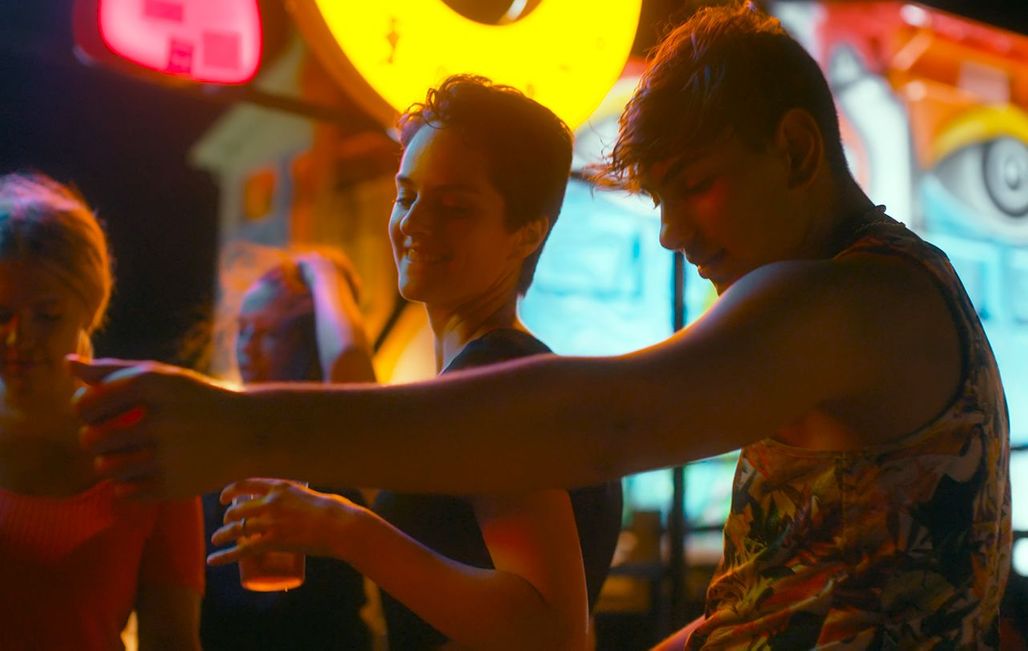
Mi Iubita, Mon Amour, Noémie Merlant’s cry of love and friendship

Two years after her triumph in Céline Sciamma's Portrait of a Lady On Fire (Portrait de la Jeune Fille en Feu), Noémie Merlant returns to Cannes with her first feature film. Mi Iubita, Mon Amour features Jeanne, a young woman about to get married who goes to celebrate her hen party in Romania. There she meets Nino for a timeless early summer.
How did this film come about?
Mi Iubita, Mon Amour was born out of friendship. The actresses in the film and Gimi-Nicolae Covaci, my companion and on-screen partner, met on the set of Shakira, my previous short film. As we spent time together talking about film, the desire to make a feature film became apparent. One summer, Gimi invited us to his home in Romania and we thought it was the perfect time to make it happen. Gimi had the idea that the story should be about how we all met and how we fell in love. We then fictionalised the script extensively, and wrote it in a month.
How long had the idea of a feature film been in your head?
For some time now. But I didn't feel legitimate. Directing Shakira gave me practical experience and therefore more confidence. The support of my group of friends and Gimi was also crucial. Without them, Mi Iubita, Mon Amour would not exist. We are a kind of machine that works together. Unlike me, Gimi never puts things off and it had to be that summer, not another. This urgency was completely in keeping with the film’s subject matter. We thought it would add something to the film’s energy. We also wanted to place this dazzling love story in a relationship with time: to make it stop.
It is a story of love, but also of consent…
I think that power relationships are always latent. The trick is to be aware of them and to defuse them. We wanted to reverse the codes of representation a little by showing a love that cannot be explained and that is free of control. I wanted to talk about love without conflict. It was thanks to Céline Sciamma's films that I understood this notion of sharing and of a truly horizontal view between two beings. Getting rid of conflicts: that's what we tried to do in the film.
You also mention the Roma community…
It was important for Gimi and me to show other stories about people from the Roma community and to reverse things. In this case, it is the Roma who welcome us. We wanted to shake up prejudices a little.
What technical resources did you use to shoot the film?
Just a cinematographer and a sound engineer! At the beginning, I didn't know what we could do technically. We had no lighting. There was simply this desire to shoot handheld, to capture moments because even though the script was written, we left room for improvisation. We discovered the settings from day to day. I had a great desire to play with what was in frame and out of frame. For me, the film is about just that: stepping out of the frame. On top of that, I wanted it to be luminous, to feel the heat, the summer, that the camera be alive and vibrant with the characters. For me, this film is as much a cry for love and friendship as it is for cinema.
It was decided from the start that you would appear on screen?
I did wonder about that, but Gimi didn't want it to be anyone else. It's so much about the intimacy of our group that it would have been almost difficult to cast another actress. We had so little time and so few resources. Sometimes I gave my actors directions during the scenes! You can't see it on the picture because I'm standing with my back to three quarters… We had no choice!


